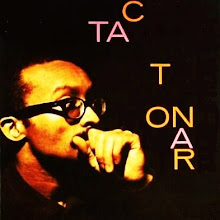
One of his finest albums as a leader during this period was Total Eclipse,recorded in 1968. The album features tenor saxophonist
Hutcherson was born in Los Angeles in 1941 and was most heavily influenced by Milt Jackson. Self-taught, Hutcherson performed locally after high school with Paul Bley,
In the early 1960s, Hutcherson was primarily a sideman, working with
Soon after signing on as a Blue Note artist, Hutcherson in 1963 recorded The Kicker, his first leadership date. More sideman sessions followed, including appearances on Andrew Hill's Judgment and Dolphy's Out to Lunch.Hutcherson's next albums under his own name were Dialogue and Components, both recorded in 1965.
In 1966, Hutcherson came under the influence of Archie Shepp, and his sound and attack became freer and more spiritual. You can hear the change in Happenings (1966) Stick Up! (1966), Oblique (1967) and Patterns(1968). In 1968, Hutcherson moved back to California and played in
During this period, Hutcherson began collaborating with tenor saxophonist Harold Land, whose arid sound was the perfect tonal foil for the vibraphonist's wet-chimes effect. Hutcherson and Land first recorded together as a quintet on Land's The Peace-Maker, and they performed on the West Coast and then in New York clubs.
In July 1968, Hutcherson recorded Total Eclipse, one of his most lyrical and free albums of the 1960s. Four of the five compositions were by Hutcherson (the fifth, Matrix, a 12-bar blues, was by Chick Corea). The first of Hutcherson's originals, Herzog, is an uptempo modal piece that soars with energy. His Total Eclipse and Same Shame are ballads. Pompeian, the album's final track, starts as a mid-tempo waltz but soon dissolves into free-form, with Hutcherson playing bells and Land on flute. Few albums sound as late 1960s as this one, complete with experimentation, freedom and spiritual consciousness.
In the months following the release of Total Eclipse, jazz would steadily change as the music began to embrace monotony, with an emphasis on rhythm, repetition and electronic textures. The trend never fazed Hutcherson, who steadfastly avoided electronic instrumentation, jazz-fusion or those tight bell-bottoms.
JazzWax tracks. For the life of me, I cannot understand why some albums are reissued on CD and others are not. Total Eclipse was issued digitally in 1989 and again in 1995. Then it fell off the map. Which is a shame considering how outstanding a recording it is. Total Eclipse is available on CD for about $50 used from independent sellers. The LP is available for less at eBay. We can only hope that the folks at Blue Note will pull this one out of the archives soon.








